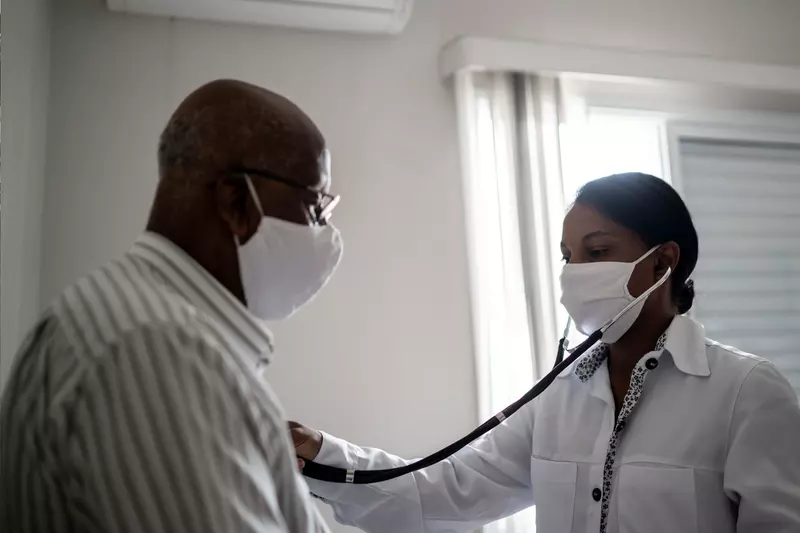- AdventHealth

Choose the health content that’s right for you, and get it delivered right in your inbox.
The Lambda Variant: What You Need to Know
The delta variant of coronavirus has dominated headlines in recent weeks. According to the Centers for Disease Control and Prevention (CDC), this highly contagious strain of the virus accounts for over 80% of the most recent COVID-19 infections across the U.S.
As we continue to monitor the delta variant, other lesser-reported strains of the virus are emerging. As recently as July 19, 2021, a hospital in Texas reported its first case of the lambda coronavirus variant.
Though the delta variant remains the top concern among U.S. health officials, it’s important to understand the lambda variant, how it differs from other strains, and what precautions you can take to stay safe.
What Is the Lambda Variant?
According to the World Health Organization (WHO), the lambda variant was first identified in Peru in late 2020. Due to its spread across South American countries, the WHO classifies the lambda variant as a “variant of interest.” The CDC, which focuses on U.S. cases, has yet to give lambda a classification. By comparison, both health organizations have labeled the delta variant as a “variant of concern.”
Like other coronavirus variants, lambda has unique differences that could affect the way the virus spreads. More research is needed to determine if the lambda variant leads to more severe symptoms or faster spread of COVID-19.
Vaccines and the Lambda Variant
Very little is known about the effectiveness of vaccines on the lambda variant. Scientists are still trying to determine if the lambda variant can escape the protective antibodies people develop after COVID-19 infection or vaccination.
Keeping Yourself and Others Safe
Though we have more to learn about the lambda variant, health experts agree that vaccination is still the best protection against COVID-19. The CDC reports that COVID-19 vaccines available for use in the U.S. offer protection against most variants known to be spreading across the country.
Our experts stress that both doses of a two-dose vaccine are needed for the highest level of protection. Beyond vaccination — and especially for those unable to be vaccinated — it’s important to continue practicing safe hygiene.
- In public, especially indoors, wear your face mask and keep a safe distance from others
- In public and at home, wash your hands thoroughly and often and avoid touching your eyes, mouth and nose
- Disinfect high-touch surfaces in your home frequently
- Read the CDC's steps to protect yourself and others
Your Next Steps
If you’re not vaccinated yet and are eligible, get the shot. Encourage your loved ones to also get vaccinated. The more people who do, the more likely we are to slow the spread of coronavirus and its variants. For more information on the coronavirus vaccine, visit our Resource Hub.



